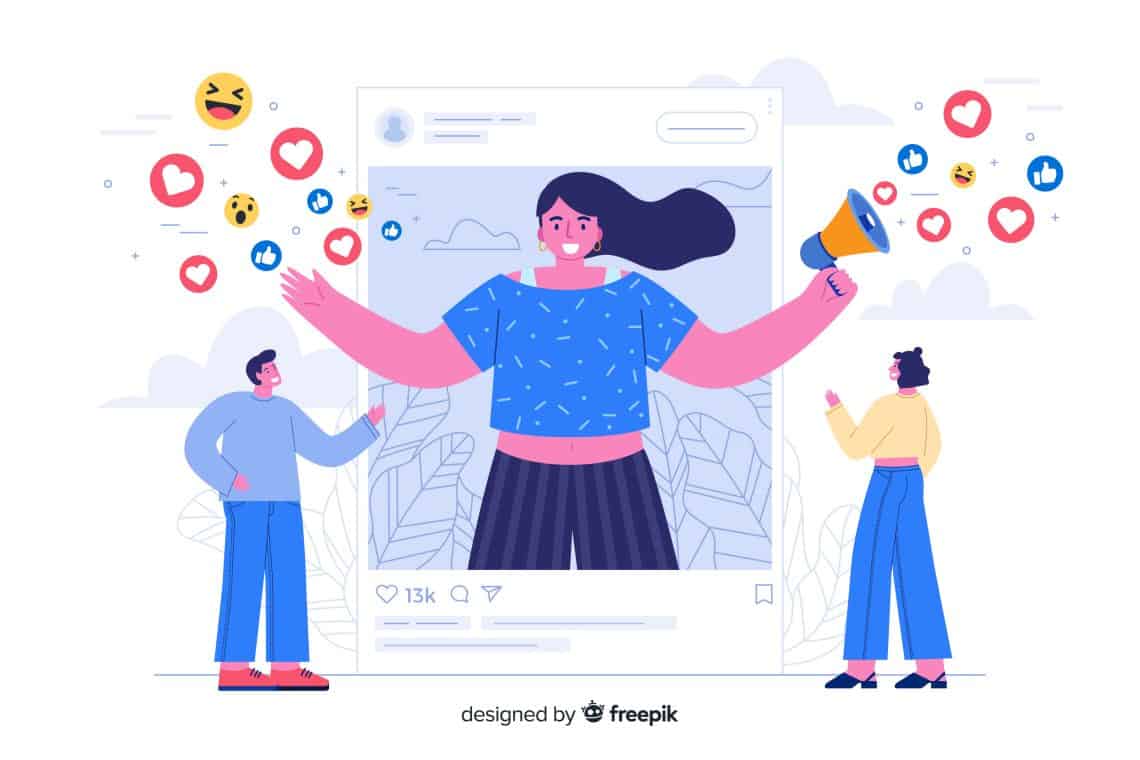You offer great products, competitive prices, and top-notch customer service. All that’s left now is building an army of loyal customers. What’s the next step? Marketing, right? Well, it depends. You might be overlooking better options.
Most ads are a mild annoyance at best and, at worst, a waste of resources. They weaponize user data, appeal to base instincts, distract from important content, and pummel people with repetitive ads, hoping some convert. With ads popping up all the time, most people can’t trust them, so they use ad-blockers.
You should consider a more effective and precise approach, like Influencer Marketing (IM). Influencers are people with large, dedicated social followings who are regarded as experts in a niche or whose audience identifies with their brand. The high trust influencers build with their following makes Influencer Marketing very effective in Nigeria.
Advantages of Influencer Marketing
With IM, influencers endorse and promote your products to their followers, generating brand awareness and sales. IM is also more organic as the audience connects with the influencer. By carefully choosing influencers, you can reach a target audience using advertising that doesn’t seem like advertising — and get better results. IM campaigns also create stronger engagement, which can quickly turn into brand loyalty.
When adopting IM, it’s essential to do thorough research and cultivate influencers who can give your brand the best exposure. Influencers are often grouped into classes based on audience reach. This is, however, just for easy classification, as there are other important metrics to consider when choosing an influencer.
Steps to Using Influencer Marketing
Research
The fact that an influencer has a massive following shouldn’t be the primary reason for choosing them. Start by researching the niches interested in your kind of products on social media, then find influencers with a large following and solid engagement in those niches. Some social media platforms are more suited for specific products, and different rates apply. Ensure that the influencers you choose are good fits for your products. It’s bad marketing for a vegan influencer to promote grass-fed beef. Your research should also help you refine your goals and determine how realistic your expectations are.
Budget and Planning
After getting a list of influencers, draw up a budget and plan. The budget should include the influencer’s rates, distribution, and content creation costs. You should also list your goals and key performance indicators. These should align with your brand’s main priorities.
The primary goal of an IM campaign could be to increase brand awareness or drive sales by a certain number or percentage. The goal should, however, be realistic. If you launch a new product, customer buy-in may be slower. This will help you measure the campaign’s success later on and make adjustments where required.
Cultivate Influencers
Influencers are the primary target of IM. It works better when influencers have a strong buy-in for the product. As influencers have worked hard to build their following, they’re very protective of it and won’t risk their reputation on brands or products they don’t trust.
Their audience has also been engaging with them for some time and can often pick up subtle signals that indicate an influencer doesn’t trust a product being promoted. You should cultivate influencers by engaging with them before hiring them.
Get them genuinely interested in your products and brand before pitching. You can gain their trust and respect by having them review new products or visit your company and learn about your processes. You should deliver content and materials to influencers in a medium they work best with.
Hire Influencers
Once you’ve done the above, you can hire an influencer (or more). Make sure they have previous experience promoting similar products. Influencer marketing agencies can also help you find experienced influencers.
Most influencers are highly creative and can often create unique content, so communicate your brand goals and message, then give them leeway to express their creativity. You can draw up a contract with the influencer or agency to ensure all fundamental terms are understood and followed.
A popular Nigerian artist has repeatedly caught flak for not using a smartphone brand he endorses. Contracts should include terms requiring influencers to use the products they promote.
After a long time of promoting a brand, an influencer can become synonymous with it and drag it down with them if they have a scandal or fall out of favor. Contracts should be periodic and include termination clauses to protect the brand in such cases.
Measure and Review
Once the campaign is underway, you should periodically measure its progress against your key performance indicators. While influencer marketing is more challenging to monitor than direct advertising, you can still use some tools to get a realistic idea of how well the campaign is doing.
Hashtags, tracked links, affiliate codes, and coupons can help you track the volume of sales and awareness an influencer is generating. There are also analytics tools that can help you measure engagement.
Adapt and Innovate
Constantly reviewing your campaign will help you stay on course, streamline, optimize, and adjust as needed. When an influencer is ineffective or negatively affecting the brand, you can identify it quickly and terminate the contract. You can easily choose another influencer from the list you drew up earlier and get back on track, armed with lessons learned from the previous campaign.
Where your campaign focuses on boosting sales, you should take advantage of new tools that help drive conversions. Most IM campaigns take place on popular social media platforms, so you can use their on-page checkout tools to ease purchases and reduce cart abandonment.
With Influencer Marketing, you can bring your products and brand to the attention of the people who need them most, all in a natural, trust-inspiring, and engaging manner. While harder to track, IM has many advantages over other forms of advertising. These include the potential for higher conversion rates, engagement, and brand loyalty.
Have you used or experienced influencer marketing before? How well do you think it works for growing your business? I look forward to your comments.




